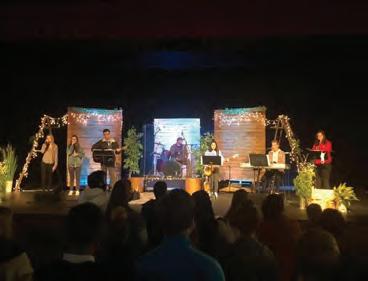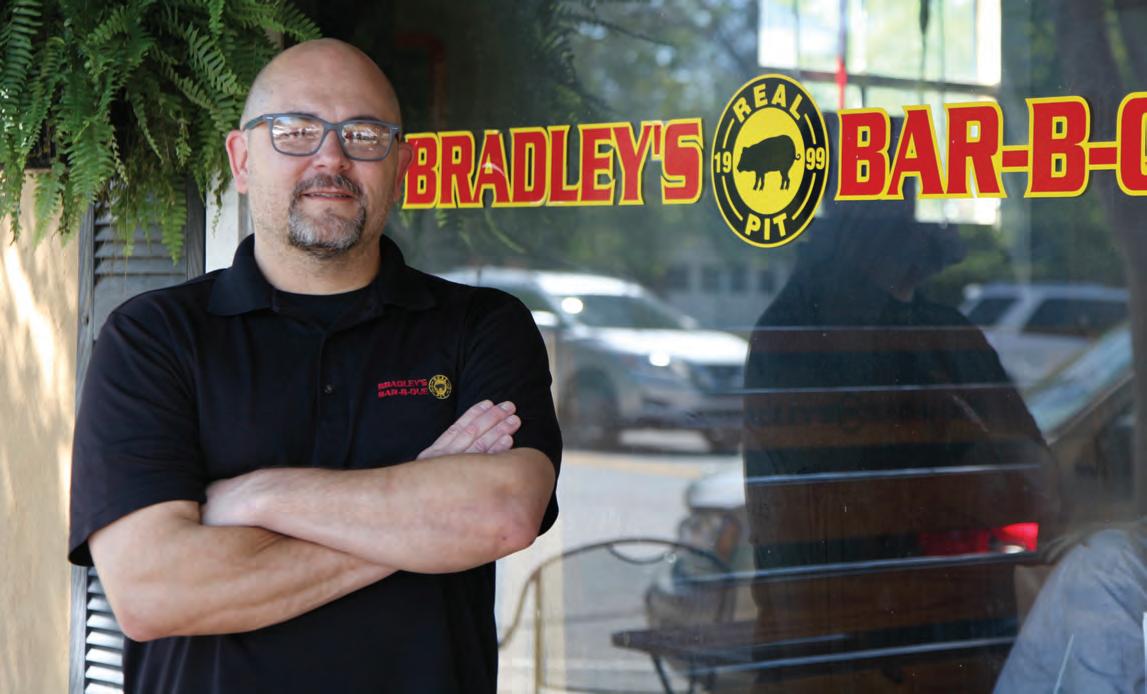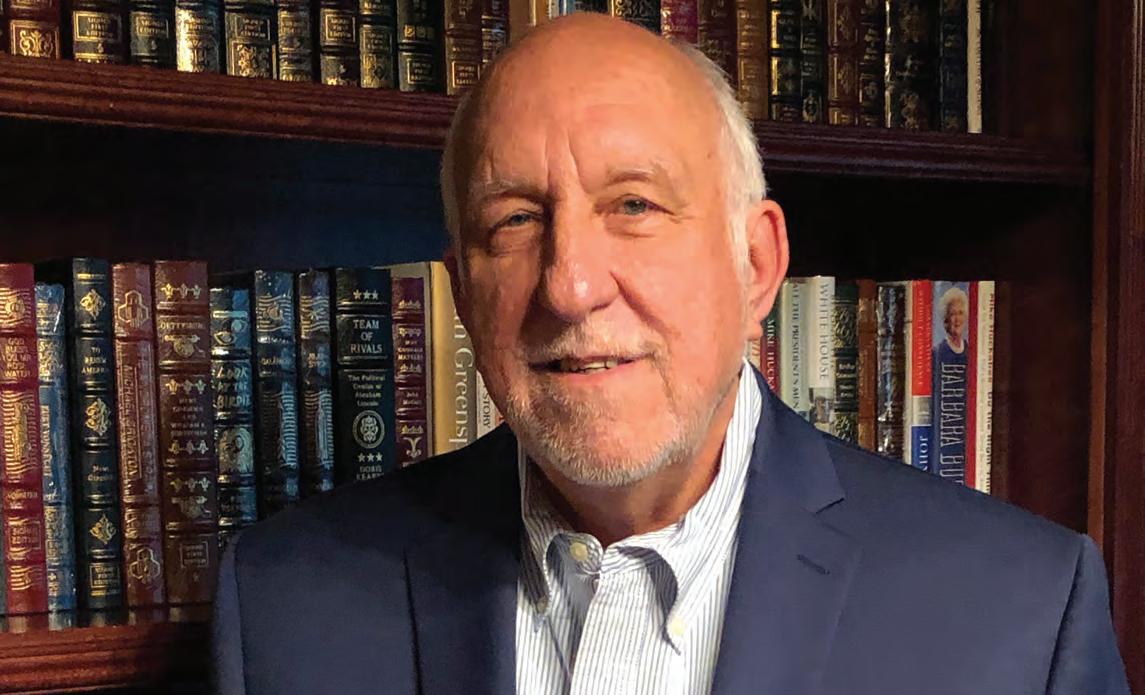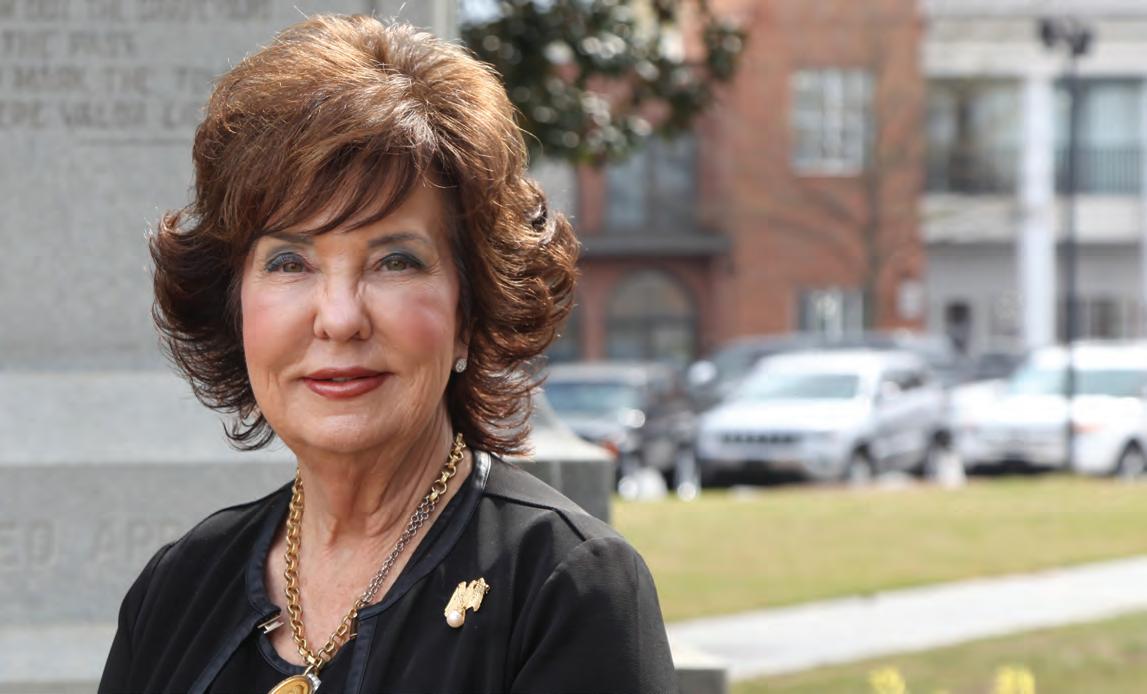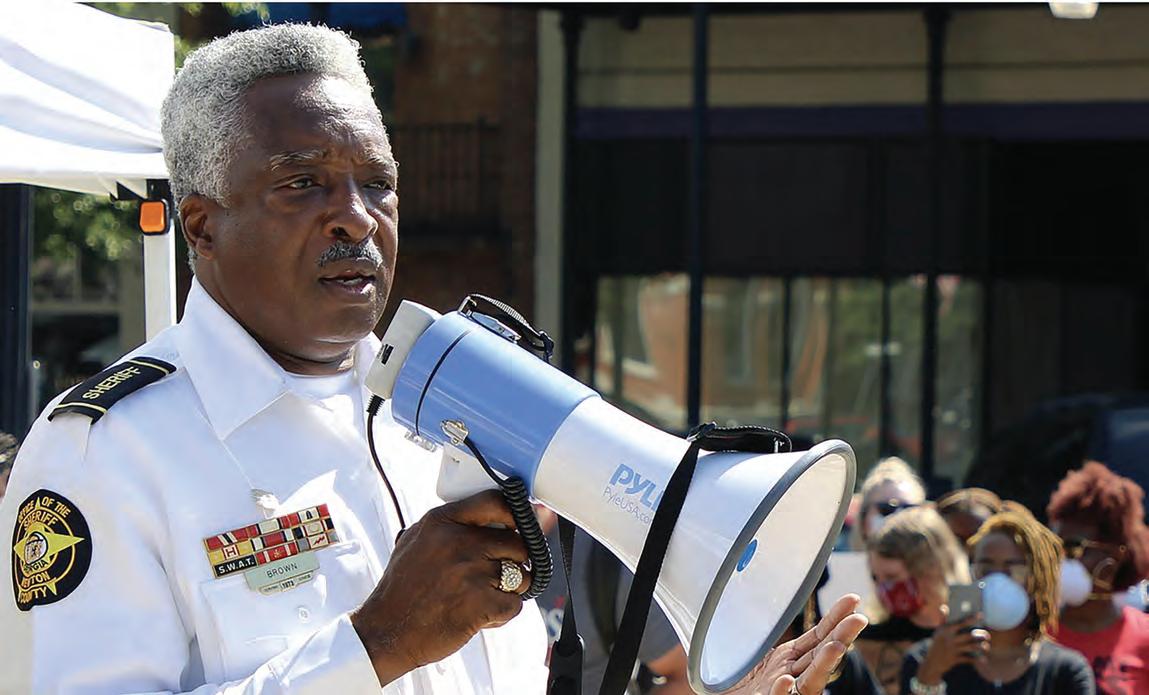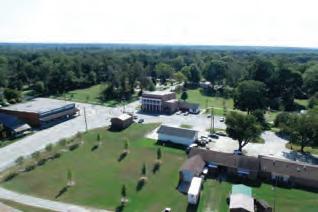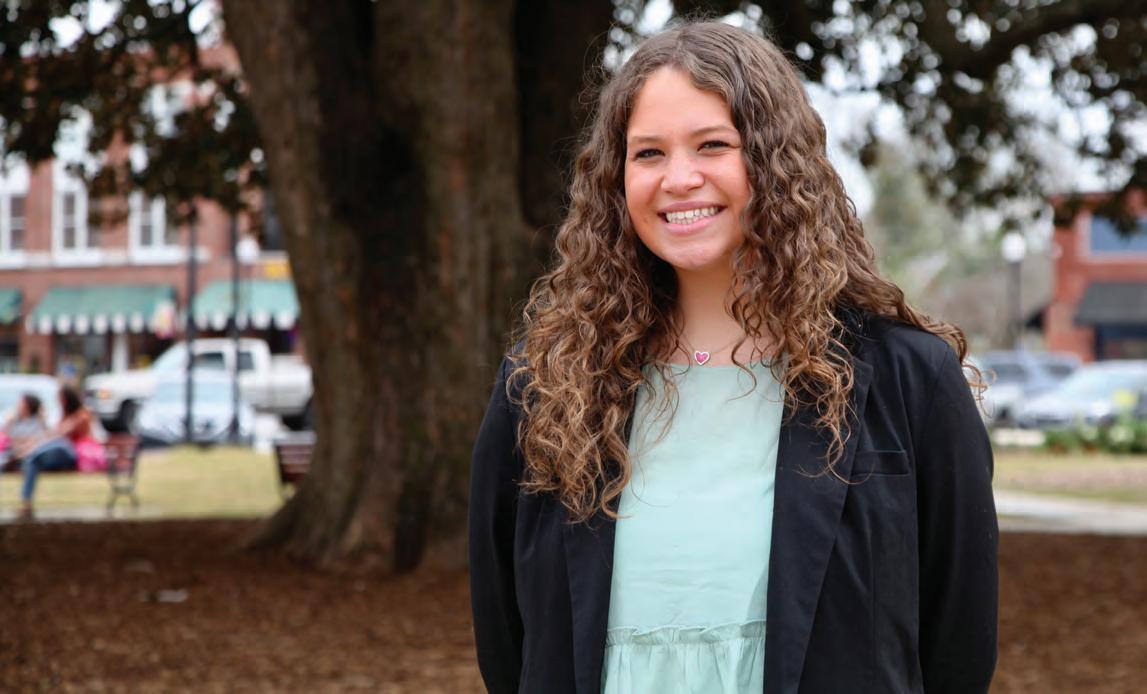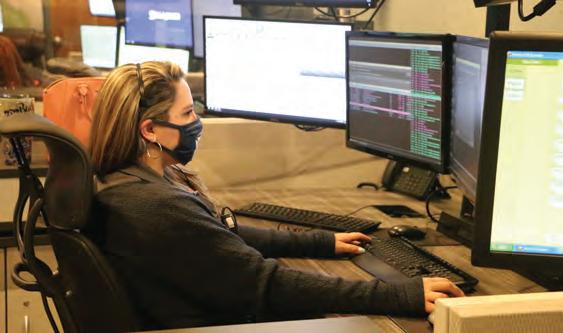
5 minute read
Not another Oxford out there
LEARNING
Oxford students gather while socially distanced on the quad. (Photo courtesy of Oxford College, David Cannon Photography)
Advertisement
By TAYLOR BECK
tbeck@covnews.com
For years, Oxford College of Emory University has taken pride in being a community-centric institution and providing an unmatched personalized experience for students. But since the global COVID-19 pandemic took root, the college’s administration has been forced to — like everyone else — adapt.
As of April 7, half of the nearly 1,000 students enrolled at Oxford College are learning via in-person instruction. The other half, which consists of students from across the globe, are learning virtually from home.
Prior to the fall 2020 semester, students were receiving all virtual instruction, which Community Relations Director Laura Gafnea said was difficult for both students and faculty. Practically no one from outside the college was allowed onto campus for visits or any other activities.
“As it probably is for every working person, I think Zoom fatigue is real,” she said. “So, you know, how do you help them get over that and figure out a way to connect with them and figure out a way to connect with them in this new format?”
Gafnea said the college’s campus life team has done a great job of making every student know and feel like they’re part of the community through various programs.
Hygge, pronounced “hoo-gah,” is the college’s latest program that has focused on developing a sense of “comfort, community and connectedness” and promote self care and wellness, Gafnea said.
As result of the program, the college’s picturesque quad has been decorated with what Gafnea described as “draped, twinkly lights, comfy chairs and fire pits” for students to take advantage of, all while maintaining the prescribed amount of social distancing.
For off-campus students, Hygge shipped out “care packages” filled with blankets, journals and a grow-your-own-plant kit.
“The Hygge program concept, I think, is really here to stay,” Gafnea said. “It’s about supporting

one another and making sure everyone feels like part of community, which we always are striving to do, even before the pandemic.”
Thanks to programs like Hygge and the diligence of the college’s faculty and staff, Dean Douglas A. Hicks believes the college has taken on the obstacles brought on by the pandemic in admirable fashion.
“[Staff and students have handled changes brought by the pandemic] as well as could have been dreamed of,” Hicks said. “And I would say we’ve pivoted so many times our faculty and staff are dizzy.
“I feel like little miracles happen every day to be able to teach half our students in person and living on campus, and the other half everywhere around the state, the country and the world,” he added. “We’ve managed to have really strong retention rates and academic progress rates throughout this pandemic.”
Gafnea said that college’s goal is to return to normalcy in the 2021 fall semester, though health and safety protocols like regular COVID-19 testing and face coverings will likely remain in place.
In addition to the innovative campus life programs implemented during the pandemic, the college has in recent years established new programs connected to its strategic plan, such as the Milestone Project and the Discovery Seminar program.
For one hour of credit, students can participate in the Milestone Project, which is a digital portfolio reflection project “in which each student curates coursework, experiential learning opportunities, co-curricular experiences, and leadership endeavors and reflects upon the connections among and impact of this academic work.” Gafnea said the project would help students along their path and transition to Emory University in Atlanta.
Gafnea said the Discovery Seminar was a program that is catered to first-year students. The seminars are three-credit courses that allow students to work closely with fellow students in a class led by a faculty mentor, who also serves as the students’ academic adviser during their time at Oxford.
Despite the pandemic, interest in the college has continued to rise. More than 60% of Emory University’s applicants reportedly showed interest in enrolling at Oxford College, which totaled approximately 20,000 prospective students. Hicks said the total marked the highest in the college’s history and — arguably more impressive — the highest among all liberal arts colleges in the U.S. Ten years ago, Hicks said, the interest was around 20%.
“For me, our success as a college has been integrally connected to the success of the university as a whole,” Hicks said. “People interested in Emory University discover Oxford College. We just love that phrase ‘unexpected Oxford.’ I met a family visiting the campus recently — their student was recently accepted into Emory University — who had never been to the [Oxford] campus before and not really heard much about it. And they loved it… That’s why those numbers are so significant.
Gafnea agreed but also attributed the growth in interest to the staff’s efforts.
“I think [the reason for the increase is due to] the work of our admissions and enrollment team,” Gafnea said. “But I think the story is getting out that Oxford is a liberal arts institution within Emory University. It’s unique in higher education. There’s not another Oxford out there. So, we are able to offer students two years of really personalized education before transition to Atlanta campus.
“So the story is getting out there, and people are
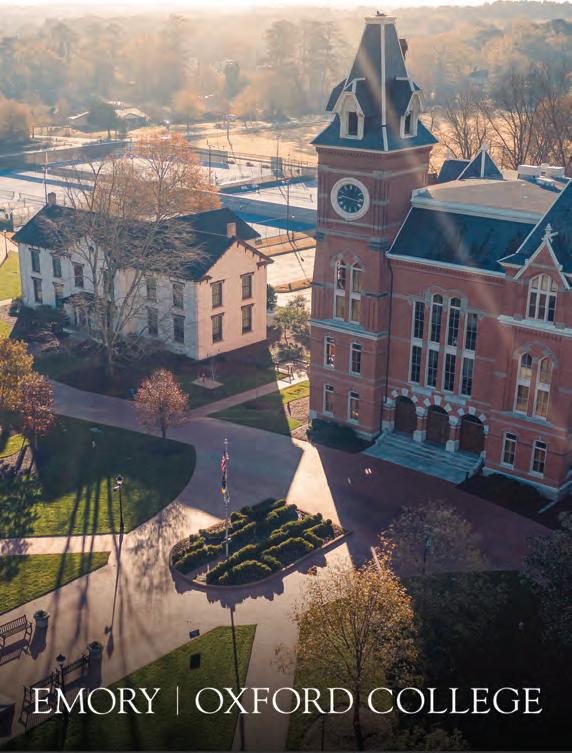
- A proud community partner since 1836 -
really intrigued by it,” she added.
Oxford College only accepts 500 new students each year, and despite the growing intrigue, Hicks said there are no active plans for expansion. He said the college’s size is exactly where it needs to be in order to maintain the community-oriented experience found only at Oxford.
Currently, the current average class size is 20, and almost all of Oxford’s offered classes have fewer than 30 students enrolled.
However, Hicks said a pilot program to slightly increase its enrollment numbers was planned to be launched this fall. He said the college wanted to welcome “a couple dozen more” students per year by staggering their entrances, which would avoid any overcrowding and continue allowing the college’s personalized brand of education.
Established in 1836, Oxford College is one of Newton County’s leading employers and an economic driver for the state of Georgia.
In Newton County alone, the college supports 520 jobs and boasts a reported annual economic impact of $79 million. Statewide, the college supports 1,500 and maintains an annual economic impact of approximately $262 million.
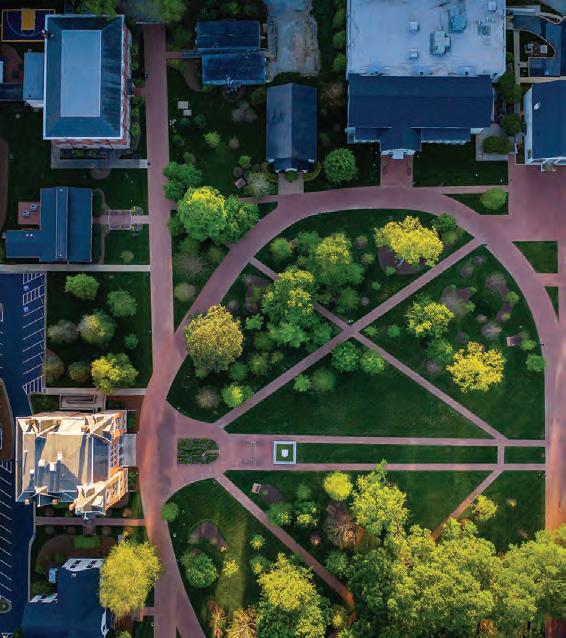
Aerial view of Oxford College. (Photo courtesy of Oxford College, David Cannon Photography)

Newton and Rockdale’s Largest Private School YOUNG AMERICANS CHRISTIAN SCHOOL
Est. 1988 K4-
